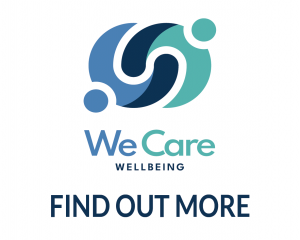Debunking 10 Common Mental Health Misconceptions
Mental health awareness is more important than ever. Yet, despite progress in understanding and discussing mental health, many misconceptions still linger.

Mental health awareness is more important than ever. Yet, despite progress in understanding and discussing mental health, many misconceptions still linger. These misconceptions can perpetuate stigma, prevent people from seeking help, and hinder progress toward creating supportive and inclusive environments.
In this blog post, we’ll debunk 10 common mental health misconceptions to promote understanding, empathy, and support for those facing mental health challenges.
- Mental Illness is a Sign of Weakness
One of the most harmful misconceptions is the belief that mental illness is a sign of weakness. In reality, mental health conditions are medical issues that can affect anyone, regardless of strength, character, or resilience. Seeking help for mental health concerns takes courage and strength, not weakness.
- You Can “Just Snap Out of It”
Another common misconception is that individuals with mental health issues can simply “snap out of it” if they try hard enough or have a positive attitude. In truth, mental health conditions often require professional treatment, support, and understanding from others.
- Only “Crazy” People Have Mental Illness
This misconception perpetuates stigma by associating mental illness with extreme behavior or instability. In reality, mental health issues encompass a broad range of conditions, and many people with mental illnesses lead productive and fulfilling lives.
- Seeking Help is a Sign of Weakness
Some individuals may avoid seeking help for mental health concerns due to fear of judgment or stigma. It’s important to emphasise that seeking help is a sign of strength and courage, and that it’s okay to ask for support when needed.
- Mental Health Problems Are Rare
Contrary to popular belief, mental health issues are not rare. Millions of individuals worldwide experience mental health challenges each year. By normalising conversations about mental health, we can reduce stigma and encourage people to seek help when needed.
- Children Don’t Experience Mental Health Issues
Another misconception is that mental health problems only affect adults. In reality, children and adolescents can also experience mental health issues such as anxiety, depression, and ADHD. Early intervention and support are crucial for their well-being.
- Medication is the Only Treatment Option
While medication can be an important part of treatment for some mental health conditions, it’s not the only option. Therapy, lifestyle changes, and self-care practices can also play a significant role in managing mental health.
- People with Mental Illness Are Violent
Media portrayals often perpetuate the stereotype that individuals with mental illness are violent or dangerous. In fact, most people with mental health conditions are not violent, and they are more likely to be victims of violence than perpetrators.
- You Can Always “See” Mental Illness
Mental health conditions are not always visible or obvious to others. Just because someone appears to be functioning well on the outside doesn’t mean they aren’t struggling internally. It’s important to validate and support individuals’ experiences, even if they don’t fit stereotypes.
- Mental Health Conditions Are Permanent
While some mental health conditions may be chronic, many are treatable, and recovery is possible with the right support and resources. Encourage hope and optimism by highlighting stories of resilience and recovery.
By debunking these common misconceptions, we can promote a more compassionate and understanding approach to mental health. Let’s work together to break the stigma, foster supportive communities, and prioritise mental well-being for all.
Remember, mental health matters, and it’s okay not to be okay. Let’s continue to educate ourselves, support each other, and advocate for mental health awareness and acceptance.
Together, we can make a difference.
EAP Assist – Employee Assistance Program
If you feel like your struggling with your mental health and don’t know where to get help, you can reach out to EAP Assist.
Springmount Services has engaged EAP Assist to provide counselling assistance to all Springmount Services employee’s free of charge for up to three visits of one hour each over a 12 month period.
You do not need permission from your manager to access this service. EAP Assist counsellors are all highly experienced and will first ask for your name and that of your employer to confirm eligibility for services. Information obtained during counselling is confidential and will not generally be released to a third party without prior consent.
The aim of counselling with EAP Assist is to help resolve both workplace and personal issues before they adversely impact your personal wellbeing and work performance.
To request up to three hours of telephone counselling you can use EAP Assist’s dedicated Springmount Services Helpline number: 0407 086 000.
Alternatively, you can go to the EAP Assist website eapassist.com.au/booking-form/ to request an appointment. Use the code 0407086000 in the booking form.
The EAP Assist website also contains an extensive range of self-help resources which all employees are encouraged to use. Please go to: https://eapassist.com.au/



